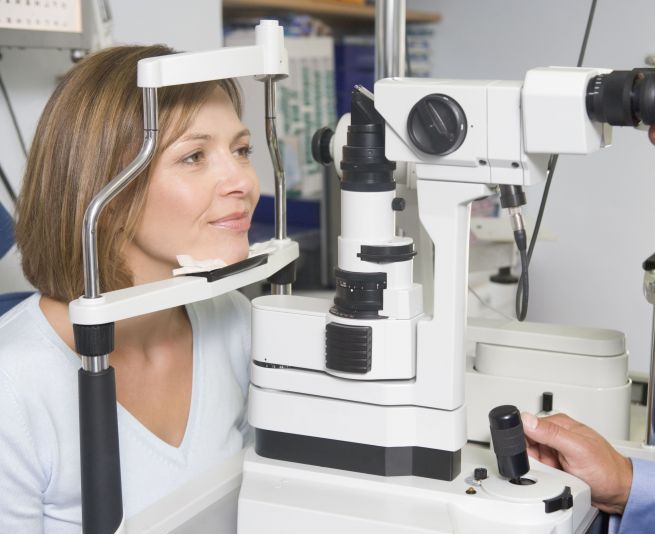

At the start of your eye examination, it is important to tell the doctor about any symptoms or problems with your eyes since your last exam. Other important information to discuss with your doctor includes: pre-existing eye conditions; current medications; allergic reactions to medications; your occupation and hobbies; your family’s eye health history; and, your general health status.
Your eye examination will include a number of tests. Some of the most common exams are listed here:
Visual Acuity Measurement – This is the familiar chart with the rows of letters. You will be asked to read each row in the chart until the letters are too small to see. You will be tested for distance and reading.
Pupillary Response – a light is directed at your eye to determine how your pupils constrict and dilate.
Refraction – an instrument is put in front of your eyes and you are asked to look through a series of lens choices. This helps the doctor to determine what glasses prescription you need for clear vision.
Muscle balance testing – This test determines how your eyes move, and if how they function together.
Slit-Lamp Examination – this instrument allows the doctor to get a highly magnified view of the structures in the front portion of the eye, including the cornea, the iris, and the lens.
Glaucoma Test – measures the eye pressure.
Fundoscopy—this is an examination of the structures in the back of the eye, including the retina, the blood vessels, and the optic nerve.
The results of the comprehensive eye examination will help determine your eye health, clarity of vision and the prescriptions needed to correct any problems. If any abnormalities are found, additional tests may be necessary.
Please call (818) 762-0647 to schedule an appointment for a comprehensive eye examination.